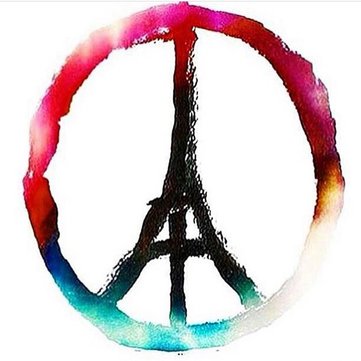These attacks mark the end of the world only for those whose sense of peace and security is now forever altered, for those who will never feel safe in a concert hall again, for those whose loved ones will never return, and most of all, for those whose lives were tragically cut short.
For the victims of these attacks, the world has already ended. The safe, modern Paris they once inhabited is gone. Carefree nights strolling along the Seine, eating and drinking at the bistros and nightclubs will be replaced by anxious meals at home. Concerts that once provided entertainment and a sense of escape will now trigger only flashbacks. Happy dreams will be replaced by nightmares. Some will even move away from the city, returning to small town life with a haunted look in their eyes.
They now exist in a different world, a world where nothing is safe, a world already inhabited by every rape victim, every domestic abuse survivor, every combat veteran, every innocent child whose cries were stifled, every person traumatized and scarred by violence.
But while their world has ended,
…ours has not
The world is safer and more peaceful in 2015 than it has ever been before.
Have we forgotten how tens of thousands died every single day as our parents and grandparents fought two world wars on these same Parisian streets? Have we forgotten how, long before these wars of modernity, not only Europe, but the rest of the world was mired in bloody conflicts between empires, kings, clans and tribes? I am not minimizing the horrific nature of what happened in Paris.
Every loss of life is tragedy enough to make the world stop spinning.
I find hope in the public outpouring of empathy around the world. Remember that many of the countries now expressing grief were once the traditional enemies of France, but the world has changed.
We should feel angry, sad, confused and compassionate.
To do less would not be human.
But we must stop saying that this is the end of the world.
We must stop saying that things have never been worse. They have!
Not for those who suffered yesterday, for them, blackness covers everything and no one should try to temper their grief. To them, my only message is one of empathy and sympathetic anger.
For the rest of us, if we let ourselves believe that the world is declining into chaos, how will we avoid responding to hatred and injustice in kind? We see the results of this kind of thinking when masked vigilantes patrol our borders, when pundits promote the use of force instead of negotiation, when social media is alive with angry statements directed at entire people groups, rather than at radicalists.
The world must respond to terrorism; those responsible must be caught and justice must be done. But in our response, we must not become unjust ourselves. We must not act in haste and without discernment. We must end the cycle that passes hatred from one generation to another, that leads children to avenge their parents, that turns the abused into abusers, that attempts to suppress violence with greater violence.
But to do so we must root out the injustice already hidden in our hearts and minds, the oppression engrained in our political, social and religious systems here at home.
We can end the cycle of violence.
It will take hard work and sacrifice, honesty and humility.
But it can be done.
We can continue to make the world a better place for all of us by working together. The world has ended for some, and we stand with them in their grief. But in their honor, let us continue to push for progress, let us continue to promote peace through education, active listening, interfaith dialogue, supporting NGOs, and promoting the kind of transforming initiatives that curb violence before it begins.

 RSS Feed
RSS Feed
